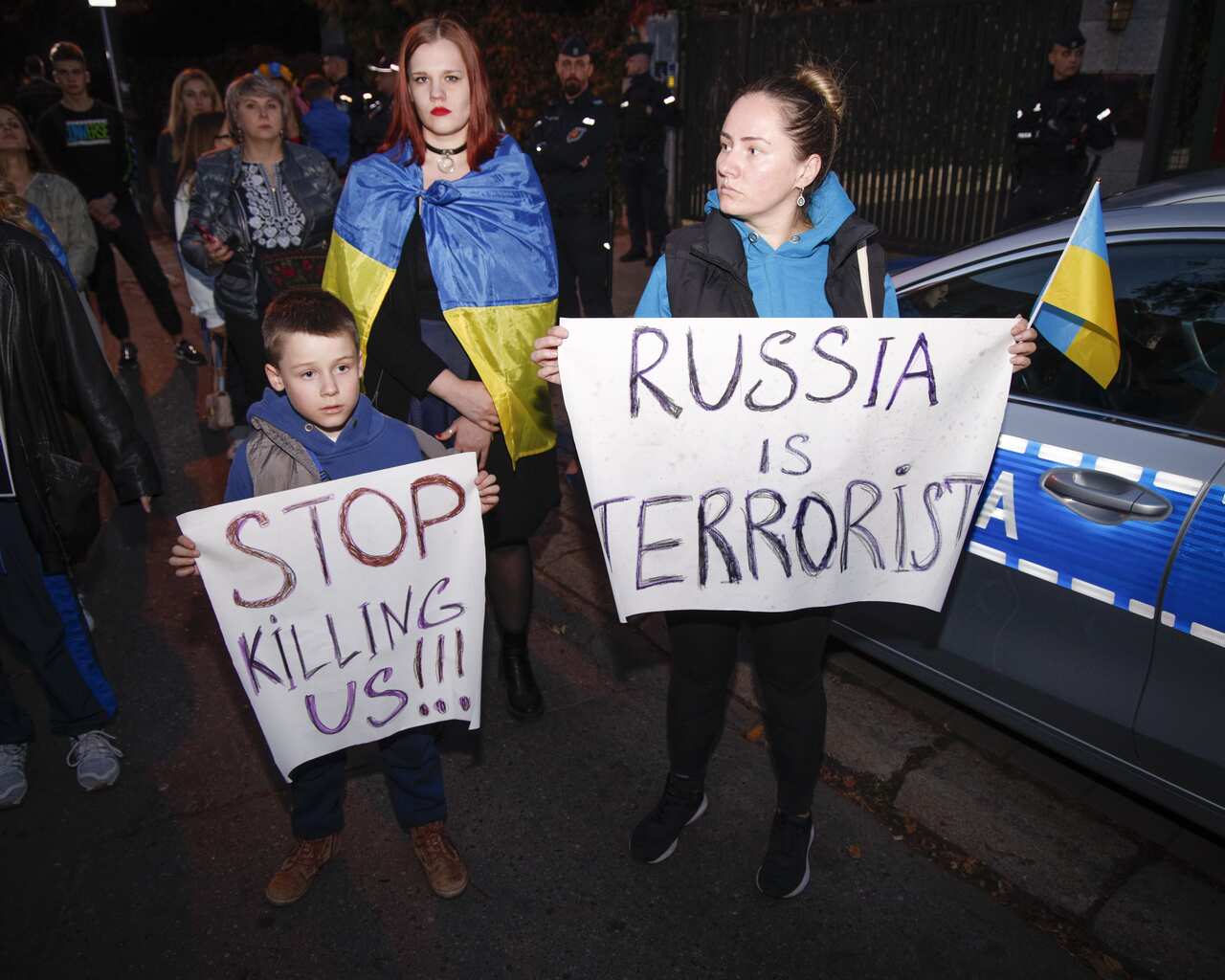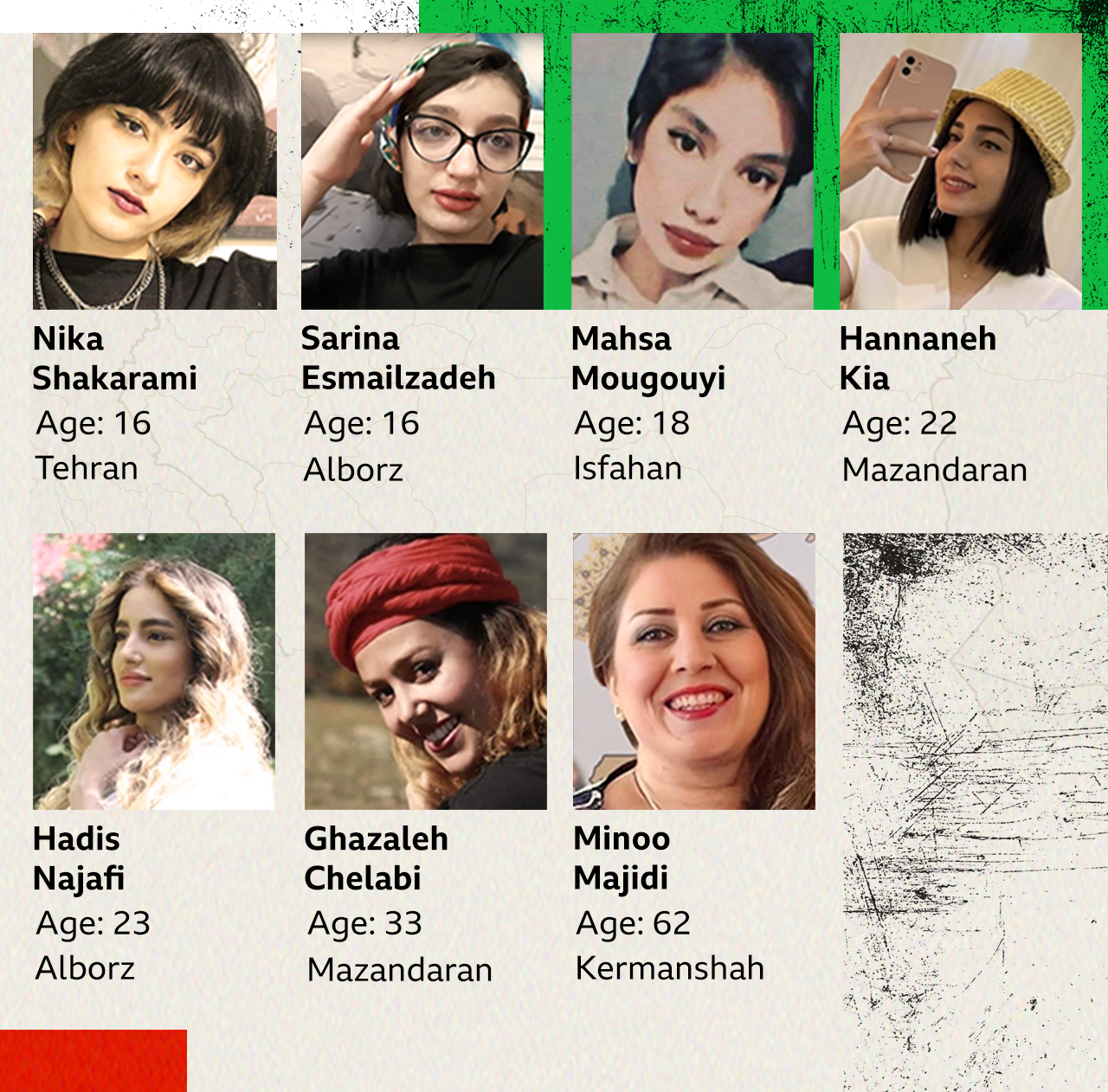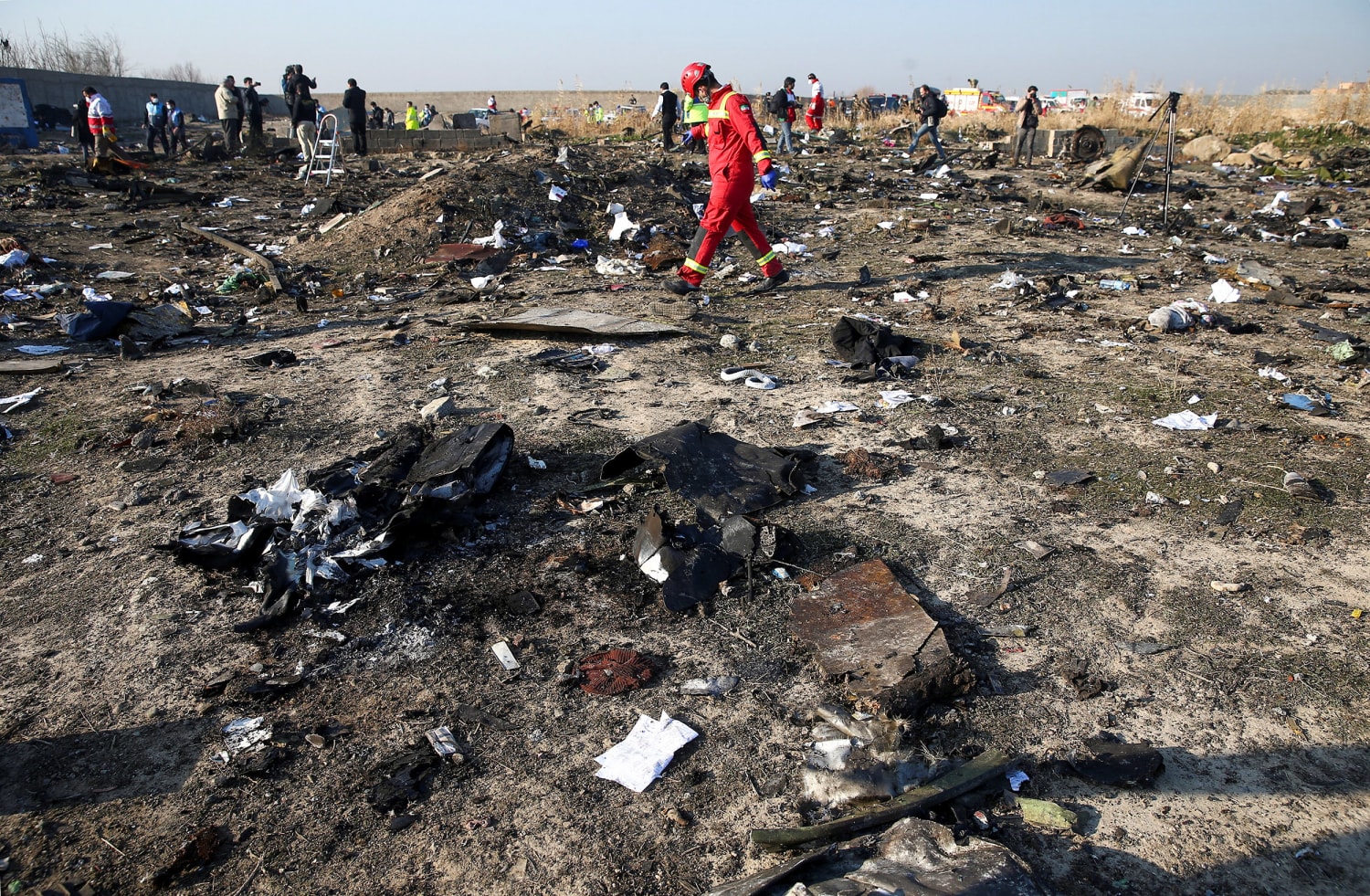Iranians Killed Ukraine - By John Hardy, Deputy Director of the Russia Program at the Foundation for Defense of Democracies, and Behnam Ben Taleblu, Senior Fellow at the Foundation for Defense of Democracies.
Iranian soldiers stood next to Iran's Shahab-3 and Khybar missiles during an action held on the occasion of Quds Day in Tehran on April 29.
Iranians Killed Ukraine

Iranian soldiers stood next to Iran's Shahab-3 and Khybar missiles at a rally held on the occasion of Quds Day in Tehran on April 29. -/AFP via Getty Images
Iran Warns Europe As Top Diplomat Says Officials 'lied ' Over Ukraine Jetliner
First, Iran is involved in a major war on the European continent. Iranian military advisers, particularly members of the Islamic Revolutionary Guard Corps, are working in occupied Ukraine and possibly Belarus to help Russia target deadly Iranian kamikaze drones on Ukrainian cities and civilian infrastructure. According to the information provided by the Israeli media citing the Ukrainian official, 10 Iranians were killed as a result of Ukraine's attack on Russian positions. Tehran is now set to up the ante by supplying Russia with not only thousands of additional drones, but also, for the first time, two types of Iranian-made missiles to supplement Russia's dwindling stockpile.
Tehran's military support is already making a deadly dent in the war, but the geopolitical consequences are growing. By increasing its support for the Russian empire's attempt to destabilize Ukraine, Iran hopes to advance its imperial project in the Middle East. Tehran will seek to deepen Russian-Iranian ties with arms deals it has obtained from Moscow by applying lessons learned from the Ukrainian battlefield to Iran's drone and missile capabilities. At the same time, the Iranian government hopes that the flare-up of the Ukraine crisis will further distract the West from confronting Iran's bid for hegemony in the Middle East. But with luck, Tehran's entry into Europe's power politics could help Washington and its Western allies pursue a stronger anti-Iranian policy.
Russia has found a willing sponsor to address the battlefield vulnerabilities that have hampered its eight-month war against Ukraine. After the Iran-Iraq war in the 1980s, Tehran, which has spent a lot of resources and effort on its own drones and missile systems, is said to have supplied Moscow with hundreds of drones of various types. These include the Shahed-136, a self-propelled missile that Moscow has rebranded as the Geran-2 and is designed to launch a kamikaze attack. In addition to helping Russian forces take out stationary targets near the front line, the pipeline has allowed Russia to launch several strikes on Ukrainian cities in recent weeks while maintaining its dwindling stockpile.
A Ukrainian diplomat said this week that Shahed-136 helped Russia destroy about 40 percent of Ukraine's electrical infrastructure and affected half of that country's non-nuclear energy. Serious lights out and power cuts. As winter approaches, Moscow hopes this terror campaign will end Ukraine's warlike tendencies.
Iran Admits Shooting Down Ukraine 737: Here's What To Know
Now, officials from both Iran and US allies say that Tehran will soon supply Moscow not only with Shahed-136 and other drones, but also with Fateh-110 and Zulfiqar short-range ballistic missiles. These single-stage, solid-state cruise missiles are the most accurate in Iran's ballistic missile arsenal and the largest in the Middle East. The Fateh-110 is older and has a range of 250 to 300 kilometers (or about 150 to 190 miles), while the Zulfiqar, an upgrade of the Fateh-110 in 2016, has a range of 700 kilometers (435). -mil). ) list.
Iran has used these missiles variously in several military operations over the past half-decade, including a January 2020 strike on US positions in Iraq that left more than 100 US servicemen with traumatic brain injuries. Although Iran has expanded the range of these weapons to its customers in the Middle East, the regime has not brought them to Eastern Europe. Like the Shahed-136 unmanned aerial vehicle, these missiles will help Moscow retain its remaining short-range Iskander ballistic missiles and other missiles that Russia has been gradually deploying over the course of the war.
That Tehran and Moscow would cooperate closely in Ukraine surprised many observers, including Russia's main experts on Iran. Despite their recent reconciliation, Iran and Russia have animosity and mistrust dating back to the Tsarist era, including a series of Russo-Persian wars and frequent Russian interference in Persian politics. Their relationship was rocky during the Cold War when Iran was led by a US-allied shah, and worsened after the 1979 Iranian Revolution. Just as Moscow helped Baghdad during the Iran-Iraq war, the new Iranian regime, along with the United States, called the Soviet Union "Satan" and supported the Afghan Mujahideen against the Soviets. Relations subsequently improved, with Russia assisting Iran's growing nuclear and missile programs in the 1990s. But Moscow regained Iran's confidence when it signed major arms deals and passed several UN Security Council resolutions punishing Iran for developing its nuclear program.

Russian-Iranian relations have gained steam since Vladimir Putin's return to the Russian presidency in 2012 and, in particular, his military intervention in Syria in 2015 to rescue their mutual friend, Syrian dictator Bashar al-Assad. Although suspicions and rivalries persist, both sides increasingly see their interests as a common interest stemming from a common opposition to the West. A formal alliance will not come, but that will not stop Russia and Iran and China from strengthening their alliances.
Iranian Woman Whose Death Led To Mass Protests Was Shy And Avoided Politics
After the infamous invasion of Ukraine, Moscow doubled its cooperation with Tehran, including the joint fight against Western sanctions. Iran's Supreme Leader Ali Khamenei instructed his subordinates to develop stronger relations with Russia and China. With the Kremlin's support, Iran was accepted as a full member of the Shanghai Cooperation Organization led by China and Russia last year. Tehran also wants to join the so-called BRICS group and is currently negotiating a permanent trade deal with the Moscow-led Eurasian Economic Union.
Seen in this context, the deal to provide Russia with drones, missiles and military advisers makes sense for Iran and could show its value to one of its two main partners in the anti-Western alliance. The deal also raises the question of what Iran could get in return. Russia's advanced fighter jet, or S-400 air defense system, which Moscow previously refused to sell to Tehran, could now be offered. (Despite Ukrainian President Volodymyr Zelenskiy's warnings to the contrary, aid to Iran's nuclear weapons program remains a bridge too far for Russia.)
Meanwhile, Iran will receive a wide range of test sites for its latest drone and missile platforms, including Western-made air defense systems and other weapons. Tehran is confident that it will use the lessons learned in the Ukrainian theater to develop future weapons and tactics in the Middle East.
But for Iran's rulers, supporting Russia's war in Ukraine is a continuation of their attacks on the West. For decades, Iran has sought to expand its influence and weaken its rivals by arming armed groups in the Middle East, such as Lebanon's Hezbollah and Yemen's Houthi rebels, including drones and missiles that it has supplied to Russia. Now, Tehran is actually using the same strategy to expand its weapons in Europe.
As Iranian Munitions Kill In Ukraine, Pressure Builds For Israel To Reassess Its Russian Balancing Act
By inflaming the Ukraine crisis, Iran hopes to keep the US focused on the Middle East. Under three successive presidents, Washington has shown it can choose to leave the region to shift military resources elsewhere and focus on domestic problems. Now that Putin's war in Ukraine has attracted Western attention and resources, Tehran sees an opportunity to feed the trend.
By inflaming the Ukraine crisis, Iran hopes to keep the US focused on the Middle East.
Instead, Washington should make clear that Iran's support for Russia's war will only encourage a stronger US resolve in the Middle East. Especially with the ongoing protests in Iran, now would be a good time for the Biden administration to reconsider its Iran policy aimed at rolling back Iranian influence in the region. US sanctions and sanctions are welcome, but will accomplish little if not part of a larger plan.
Ironically, Tehran's support for Russia's war in Ukraine could make the West pay more or less attention to the Middle East, especially if Europe now takes a hard line against Iran. Britain and the European Union followed Washington last week in imposing targeted sanctions against elements of Iran's drone program, building on recent similar sanctions across the Atlantic against Tehran's police. As the Iranian threat to Europe looms, Washington should not miss this opportunity to further align its Atlantic policies on Iran.
Ukraine Accuses Russian Forces Of Using Iranian Drones, 'destroying' A Third Of Country's Power Stations
The US should seek more support against Moscow from Israel and the Persian Gulf countries, pointing to Russia's deep ties to Iran. Of course, Tehran's support for Russia's war in Ukraine does not immediately change Israel's or the Arab Gulf's calculus for Russia. For example, Jerusalem is unwilling to grant Kiev's requests for air defense systems, and the emirates seem uninterested in reducing Russian money flowing into their country to evade Western sanctions. But the allies of the United States
Iranians, iranians food, christian iranians, iranians women, uk visa for iranians, iranians in texas, iranians tv, scholarships for iranians, chat with iranians, iranians culture, iranians in los angeles, killed


0 Comments